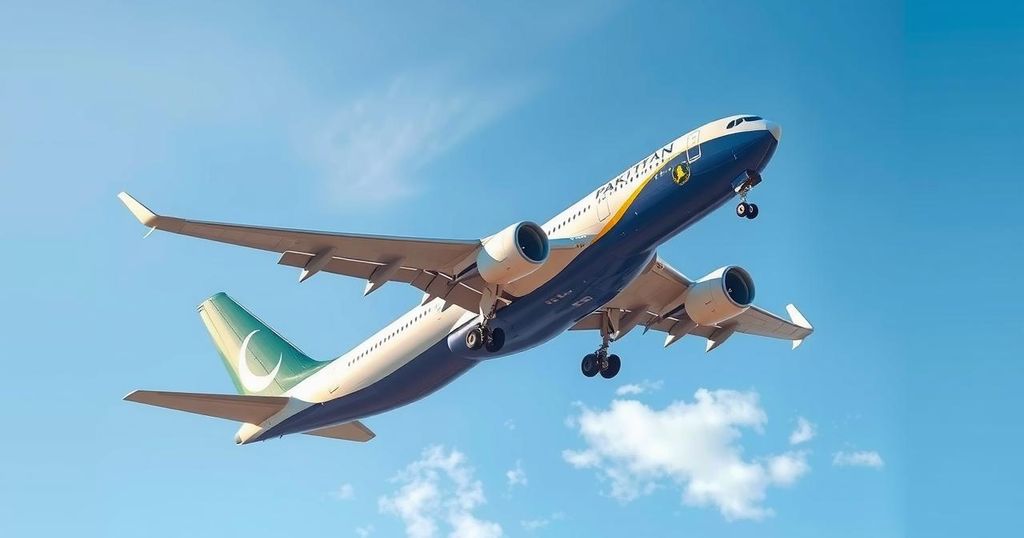PIA Resumes Direct Flights to Europe Following EU Ban Lift

Pakistan International Airlines has resumed direct flights to Europe after the EU lifted a ban imposed due to safety concerns. The first flight from Islamabad was fully booked, and further European expansions are planned. The ban cost PIA about $150 million annually, and its lifting represents a crucial recovery following a tragic crash in 2020 that highlighted shortcomings in pilot training. A new airport in Gwadar is also set to enhance regional connectivity.
Pakistan International Airlines (PIA) has resumed direct flights to Europe following the lifting of a ban imposed by the European Union Aviation Safety Agency (EASA). This resumption comes after a significant hiatus, during which the ban was initially enacted due to statements made by a former aviation minister concerning the safety records of Pakistani pilots. The first flight from Islamabad was fully booked, carrying over 300 passengers. PIA plans to expand its operations further into European markets in the near future.
In 2020, the crash of a PIA aircraft in Karachi, which resulted in 97 fatalities, brought scrutiny to the airline. An investigation revealed that a considerable percentage of Pakistani pilots had forged their qualifications. Subsequent inquiries established that pilot error was responsible for the accident. The ban on PIA’s operations led to substantial economic repercussions, costing the airline approximately $150 million in annual revenue.
The airline’s revival also coincides with the recent inauguration of a noteworthy new airport in Gwadar, southwestern Pakistan, funded by China. This airport is poised to enhance connectivity in the region and is part of a broader investment initiative by Beijing, bridging a deep seaport and airport with road access to China.
The context of the ban on Pakistan International Airlines (PIA) originated after a tragic plane crash in 2020, which aggravated the scrutiny on the airline’s safety protocols. Reports indicated that a significant number of pilots had allegedly falsified their qualifications. The closure of PIA’s operations in Europe not only affected the airline’s reputation but also incurred significant financial losses, highlighting the interplay between aviation safety governance and economic sustainability in Pakistan.
The resumption of direct flights to Europe by PIA signifies a positive turnaround for the airline, which struggled under the weight of regulatory bans and financial challenges in recent years. As PIA seeks to broaden its reach into European countries, this development may facilitate a strategic recovery in its international operations. Moreover, the establishment of new travel routes, such as the one from Gwadar, underscores the potential for bolstered economic growth and enhanced connectivity for Pakistan in the global aviation market.
Original Source: m.economictimes.com







